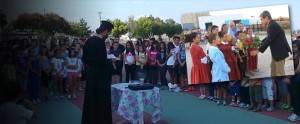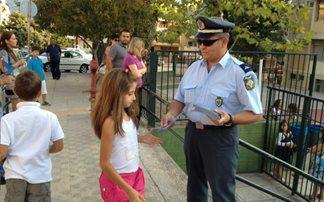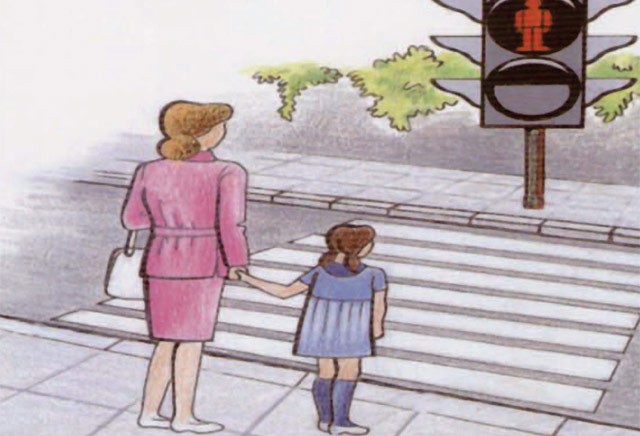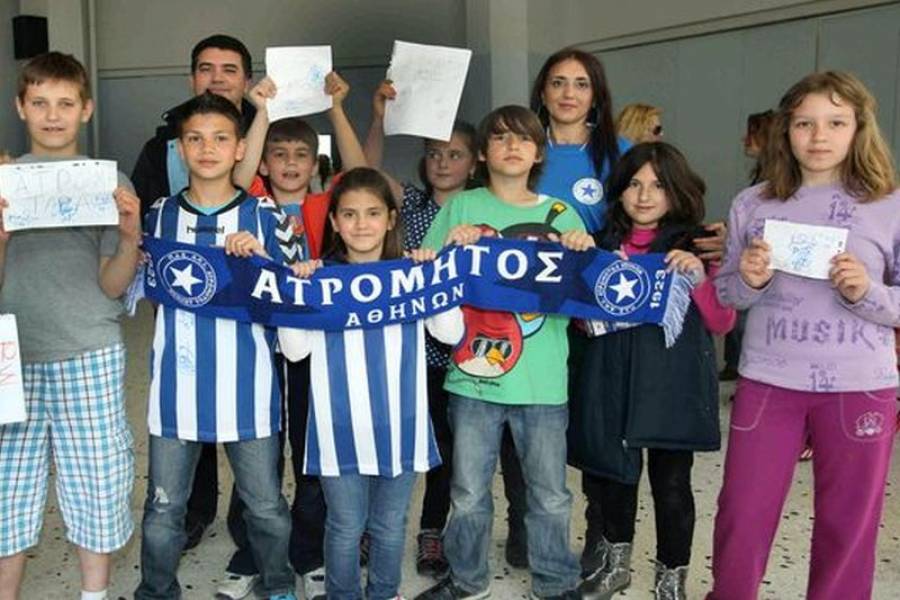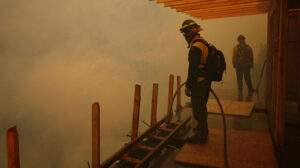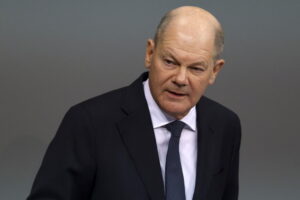The school year officially starts for Greek primary and secondary students on Thursday with the traditional Agiasmos (Blessing) ceremony before lessons begin on Friday. Every new school year is a fresh slate for every student and is marked by promise and opportunity, but of course, there are also a few hitches on the bumpy ride to wisdom. Here’s all you need to know about this year’s beginning:
Teacher shortage
For many students, classes are to begin without teachers due to a shortage of 12,000 positions, according to teaching unions. The Education Ministry announced that 4,900 substitute teachers had been hired in addition to a total of 127,033 teachers that had started work on September 1. Another 10,000 substitute teachers are to be hired by the end of the month and 1,000 will be on standby.
More police
The Hellenic Police Headquarters announced an integrated security system to be implemented in schools across the country for the protection of the student community. In this framework, there will be 24-hour surveillance by undercover law enforcement agents as well as regular patrols by the DIAS motorcycle-riding squad. School canteens will also be regularly assessed to ensure the application of legislation pertaining to health and bookkeeping accounts. Other police intervention will include checks on the safety of school buses, installations, crime prevention, etc.
Road safety
A road safety program by the Hellenic Police, titled “I Travel Properly, I Win Life”, is being implemented at select schools around the country for the first time this year. The initiative was educate young students and their parents to increase awareness and prevent accidents. To download the children’s booklet (in Greek) CLICK HERE.
Less sport
Physical education had already been shortened on school programs by one hour per week last year with further cuts being made this year for 2nd forms of junior and senior high school. Primary schools will have two hours of physical education per week, whereas sports lessons have already been cut from professional high schools (EPAL).
Visits by sports stars
Priests and politicians have traditionally visited local schools for the ceremonious first-day Blessing event, however sports stars from the football team Atromitos will also be visiting various schools to give students a chance to meet with their favorite footballers. Not only that, they’ll also be handing out free tickets to Sunday’s Atromitos vs. Panetolikos match.
Parental Leave
The General Confederation of Greek Workers (GSEE) announced that, according to article 5 of the 2008-2009 National General Group Contract (EGSSE), parents are entitled to four days of paid leave per child under the age of 16 in order to visit their children’s schools to meet with teachers or attend functions within working hours. These days are in addition to sick days and vacation leave.
School vacations for 2014/2015
In Greece, schools are closed during public holidays (October 28, March 25, 17 November) and there are reduced lessons on October 27 and March 24. Each area’s schools are closed on their local saint’s feast day and many schools are used as polling stations and shut down during national and local elections. Furthermore, students don’t attend schools when their teachers are on strike and city schools also close down when there is heavy snowfall.
School holidays this year are during Christmas (December 24, 2014, to January 7, 2015), Easter (April 6 to April 19, 2015) and summer vacations kick off on June 16, 2015, for primary schools and end during the official end to exams, usually a week later, for secondary school students. Furthermore, in mid-May high school students don’t attend school as they are given two weeks off prior to the start of the exam period in order to study.
Ask me anything
Explore related questions
